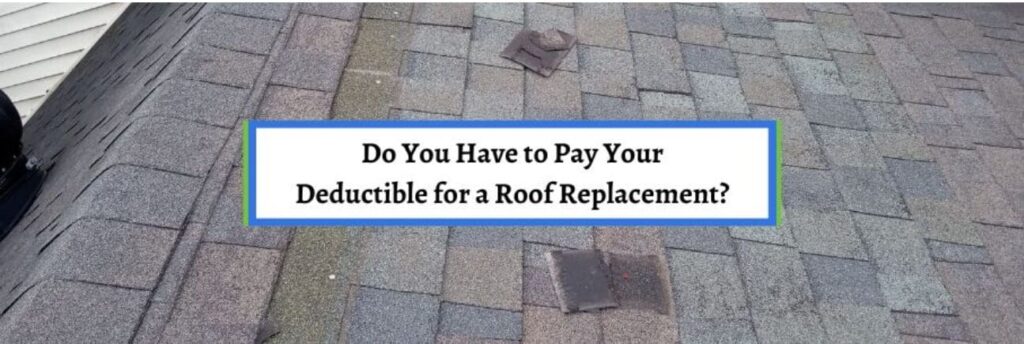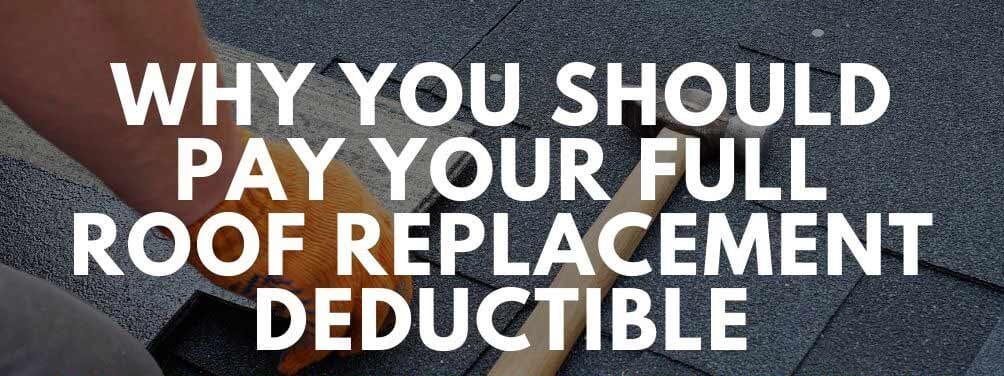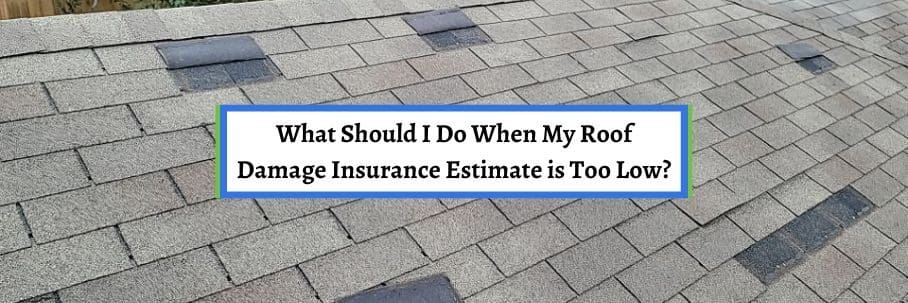
The insurance and roofing companies have questionable reputations, as both can potentially take advantage of customers. When these two industries collaborate, the risk of scams and misinformation significantly increases, with deductibles being a major concern.
Many homeowners who are filing insurance claims for roof damage often ask, “Do I need to cover the deductible?” Unfortunately, certain companies’ responses to this question can lead to significant issues.
For more than three decades, the Alliance Specialty Contractor team has been dedicated to providing homeowners with transparent information, particularly regarding insurance matters. In this article, we aim to clarify the costs associated with obtaining a roof replacement through an insurance company.
The article addresses the following inquiries:
- Is it necessary to pay the deductible for a roof replacement?
- Besides the deductible, what other expenses should you expect when getting an insurance-covered roof replacement?
- Why is the estimate provided by your insurance lower than the estimate provided by your roofing companies?

Is it necessary to cover your deductible for a roof replacement?
Regardless of any claims or promises made by roofing companies, it is essential to pay your deductible for an insurance-covered roof replacement once your claim is approved. Attempting to avoid this obligation can lead to involvement in one of the most significant roofing companies industry scams.
While you may come across roofing companies that offer to cover your deductible, it is important to note that such actions are illegal. When roofing companies pay your deductible on your behalf, it is not only breaking the law but also engaging in fraudulent behavior.
Although some homeowners may be enticed by the prospect of having their deductible paid by roofing companies, I strongly advise against working with such contractors. While saving money is undoubtedly important, allowing roofing companies to assume your deductible is not worth participating in fraudulent activities. It is crucial to disregard any company that proposes paying your deductible.

What additional expenses are involved in obtaining an insurance roof replacement?
Now that you understand the necessity of paying your deductible regardless of the circumstances, it’s crucial to explore whether there are any other costs associated with an insurance roof replacement.
The answer to this question depends on the specifics of your insurance policy and the amount allocated by your insurance company. Typically, your roof falls under one of two types of insurance policies:
Actual Cash Value or Replacement Cost Value.

Explanation of an Actual Cash Value (ACV) policy:
When you have an Actual Cash Value (ACV) policy, the insurance company will reimburse you for the current depreciated value of your roof. Under this policy, the insurance company is only obligated to provide compensation based on your roof’s value at the time of the claim.
In this situation, it’s important to note that the reimbursement you receive may not be sufficient to cover the entire cost of a roof replacement. You will need to utilize the depreciated amount provided by the insurance company and make up the remaining balance from your own pocket.
While it might be tempting to search for a lower-priced roof or one that aligns with the compensation from your ACV policy, it’s crucial to consider the potential drawbacks. Opting for a cheaper roof often means compromising on quality and workmanship, which can lead to premature roof failure right from the beginning.

Explanation of a Replacement Cost Value (RCV) policy:
Under a Replacement Cost Value (RCV) policy, your insurance company will reimburse you for the expenses required to replace your roof entirely with a new one. With this policy, the insurance company is obligated to provide you with sufficient funds to cover the full cost of a roof replacement.
The process typically involves receiving an initial payment that represents the actual cost value of your roof, while the insurance company retains a portion as recoverable depreciation. Once you complete the necessary work and provide evidence that it aligns with the claim, the insurance company will issue a second payment that covers the remaining expenses.
It’s important to remember that the insurance company’s coverage is limited to restoring your roof to its original state. If you wish to upgrade specific aspects, such as transitioning from 3-tab asphalt shingles to architectural asphalt shingles, you will need to cover the additional costs out of your own pocket.

Explanation of why your insurance estimate is lower than your roofing companies estimate:
Even if you have a Replacement Cost Value (RCV) policy, it is highly likely that your insurance estimate will be lower than the estimate provided by roofing companies. This discrepancy arises because the insurance company often excludes essential line items, labor costs, or other necessary elements that roofing companies require to complete the job properly and maintain profitability.
While you might assume that roofing companies should be able to perform the work within the amount provided by the insurance company, this is generally not the case for most companies. All roofing companies operates as a for-profit business and needs to achieve a certain profit margin on each project to sustain its operations.
Unfortunately, insurance companies overlook roofing companies overhead expenses and profit margins. For instance, Xactware’s pricing, the software commonly used by insurance companies to determine estimates, does not include general overhead expenses. Instead, these expenses are typically added to the estimate as a percentage of the total bid, along with an appropriate profit margin. This generalized approach proves to be ineffective and can potentially lead to some roofers taking advantage of homeowners.
It is essential to understand that while you may find a roofer who is willing to work for the amount offered by the insurance company, there is likely a reason why their estimate is lower compared to other companies. Therefore, it is crucial to conduct thorough research on the company, scrutinize their estimate, and investigate the reasons behind the significantly lower cost.

What are my alternatives if the insurance estimate is lower than the roofer’s estimate?
Now that you have an understanding of the necessity to pay your deductible for an insurance roof replacement, the additional expenses involved, and the reasons behind the insurance estimate being lower than all roofing companies estimate, it is crucial to disregard all roofing companies willing to cover your deductible.
Committing insurance fraud should never be considered, even if you have a higher deductible. Additionally, it’s important to remember that there is a high likelihood that your insurance company will not provide sufficient funds to cover the entire cost of your roof replacement.
Leave a Reply